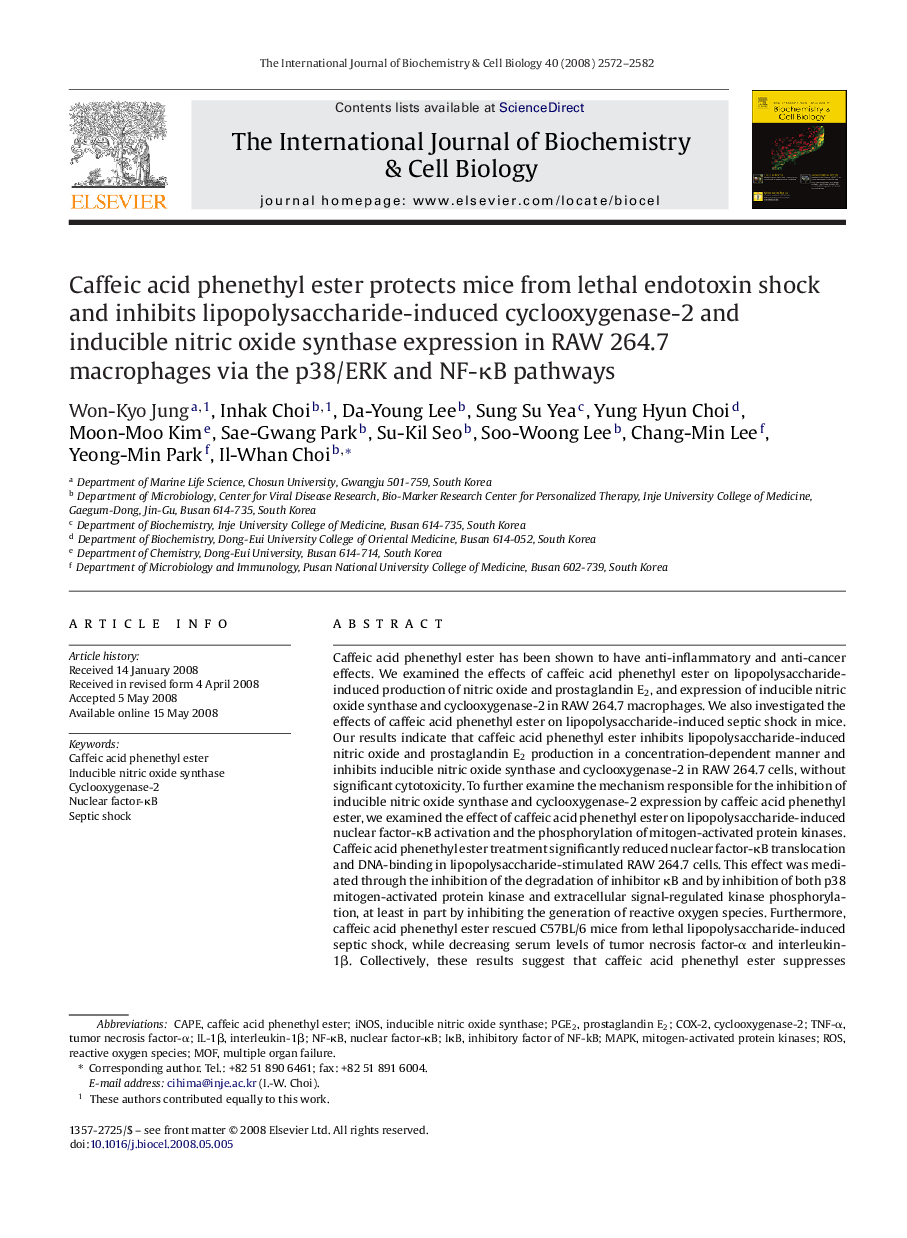| Article ID | Journal | Published Year | Pages | File Type |
|---|---|---|---|---|
| 1984780 | The International Journal of Biochemistry & Cell Biology | 2008 | 11 Pages |
Caffeic acid phenethyl ester has been shown to have anti-inflammatory and anti-cancer effects. We examined the effects of caffeic acid phenethyl ester on lipopolysaccharide-induced production of nitric oxide and prostaglandin E2, and expression of inducible nitric oxide synthase and cyclooxygenase-2 in RAW 264.7 macrophages. We also investigated the effects of caffeic acid phenethyl ester on lipopolysaccharide-induced septic shock in mice. Our results indicate that caffeic acid phenethyl ester inhibits lipopolysaccharide-induced nitric oxide and prostaglandin E2 production in a concentration-dependent manner and inhibits inducible nitric oxide synthase and cyclooxygenase-2 in RAW 264.7 cells, without significant cytotoxicity. To further examine the mechanism responsible for the inhibition of inducible nitric oxide synthase and cyclooxygenase-2 expression by caffeic acid phenethyl ester, we examined the effect of caffeic acid phenethyl ester on lipopolysaccharide-induced nuclear factor-κB activation and the phosphorylation of mitogen-activated protein kinases. Caffeic acid phenethyl ester treatment significantly reduced nuclear factor-κB translocation and DNA-binding in lipopolysaccharide-stimulated RAW 264.7 cells. This effect was mediated through the inhibition of the degradation of inhibitor κB and by inhibition of both p38 mitogen-activated protein kinase and extracellular signal-regulated kinase phosphorylation, at least in part by inhibiting the generation of reactive oxygen species. Furthermore, caffeic acid phenethyl ester rescued C57BL/6 mice from lethal lipopolysaccharide-induced septic shock, while decreasing serum levels of tumor necrosis factor-α and interleukin-1β. Collectively, these results suggest that caffeic acid phenethyl ester suppresses the induction of cytokines by lipopolysaccharide, as well as inducible nitric oxide synthase and cyclooxygenase-2 expression, by blocking nuclear factor-κB and p38/ERK activation. These findings provide mechanistic insights into the anti-inflammatory and chemopreventive actions of caffeic acid phenethyl ester in macrophages.
